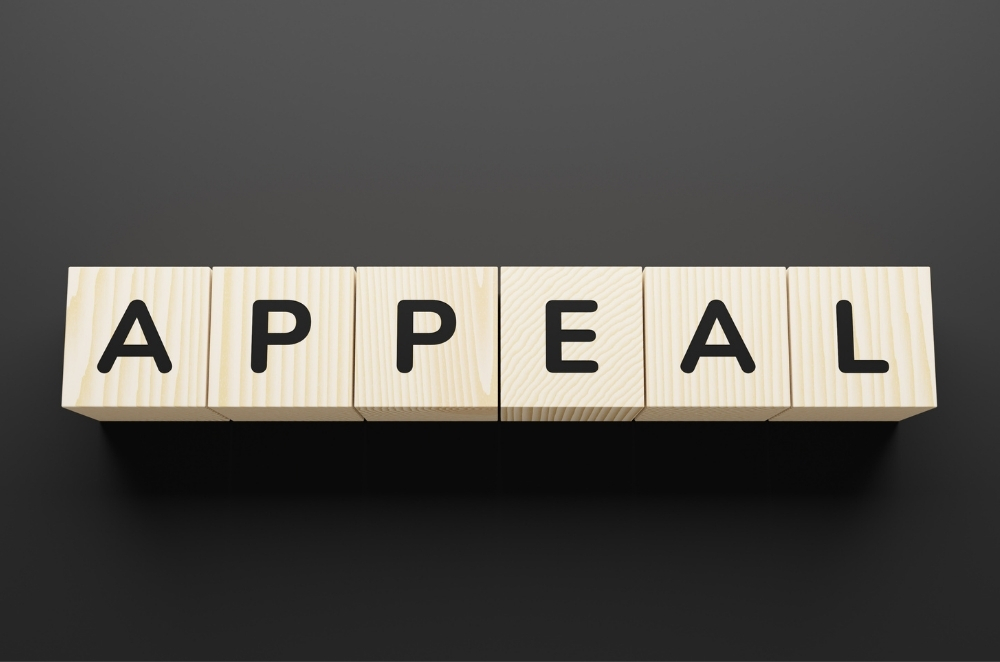
When an injured person (known as the “plaintiff”) files a personal injury claim against another party (known as the “defendant”), the dispute can sometimes result in a civil trial. If the plaintiff is unhappy with the result of the trial, they have the option to appeal the court’s decision.
Most injured people do not have previous experience filing lawsuits, much less appeals. For that reason, plaintiffs usually have lots of questions when they want to appeal a court’s decision, which is understandable. Following a trial, some plaintiffs find themselves wondering, “What happens during an appeal in a personal injury trial?”
If you have wondered about this, read on. In the following post, we will discuss the appellate process in detail.
Common Steps to Filing an Appeal
Most personal injury claims do not go to trial. The majority of claims are settled outside of court through negotiations with the insurance company of the at-fault party. When negotiations fail, a trial may be necessary. Once a personal injury trial has concluded, the plaintiff can file an appeal if they are not satisfied with the court’s decision.
Filing a Notice of Appeal
The plaintiff’s attorney can file a notice of appeal within 30 days of the court’s initial decision. Once this happens, the plaintiff becomes known as the “appellant” and the defendant is known as the “appellee.”
After filing the notice of appeal, the appellant should acquire a transcript of the court proceedings. They then have 30 days to submit a brief to the court and other parties.
Oral Arguments
Sometimes, this brief is accompanied by an oral argument. Oral arguments are typically necessary in complicated personal injury cases. The oral argument should detail why the plaintiff/appellant disagrees with the court’s ruling. It should also specify the outcome that the plaintiff is seeking.
After the oral argument stage, the appeal has officially been “submitted.” If the claim is straightforward, the appeal may be submitted without the inclusion of oral arguments.
How Long Does an Appeals Decision Take?
Just like each personal injury claim, every appeal is unique. There are many factors that will influence how long the appeals decision will take in your case.
These factors include:
- The overseeing appellate judge
- The size of the judge’s current caseload
- The complexity of your personal injury case
- The number of documents in the record on appeal
When a personal injury appeal is more complex and involves more factors, the judge’s decision may take longer.
An Appeal Is Not a Retrial
It is important to understand that an appeal is not the same as a new trial. The judges overseeing personal injury appeals do not hear testimony or new evidence. These judges simply review the relevant factors of the case. They decide whether there were any problems with the lower court’s decision.
Appellate judges do have the authority to return the case to a lower court for a retrial. However, they may decide that the lower court’s decision was appropriate. They may also amend the previous decision.
Defendants Also Have the Ability to Appeal
While we have focused on the ability of the plaintiff to appeal the court’s decision, the defendant (the party who has been accused of negligence) also has this option. Any of the relevant parties in a personal injury trial can legally appeal the decision of the court or jury.
In South Carolina, personal injury plaintiffs must prove their claims by a “preponderance of the evidence.” This is a legal standard of proof. A preponderance of the evidence has been met when the plaintiff convinces the judge or jury that their view of the case is more likely than not.
During a personal injury trial appeal, the appellate judge can review whether the plaintiff’s claim actually met this standard. If not, they may decide to appeal the decision in favor of the defendant.
The Advantages and Disadvantages of Appealing
It may sound like a personal injury trial appeal is an easy way to contest a decision that you do not like, but it is not so simple. There are potential costs to filing an appeal.
First, the appeals process is typically expensive, since additional court costs and fees are required to file an appeal.
Second, the appellate judge may change the outcome of the case in a way that is not favorable to you. If you file an appeal as a plaintiff, the judge may find that you are owed less money than the initial court ruling gave you. There is no guarantee that the appellate court’s ruling will be better for any particular party.
Contact an Experienced Legal Professional
If you have been injured and believe that you are owed financial compensation, contact a personal injury attorney. Having an experienced legal representative will give you the best chance of receiving the compensation that is rightfully yours.
Contact the experienced South Carolina personal injury lawyers at Joye Law Firm today for your free case review.







































